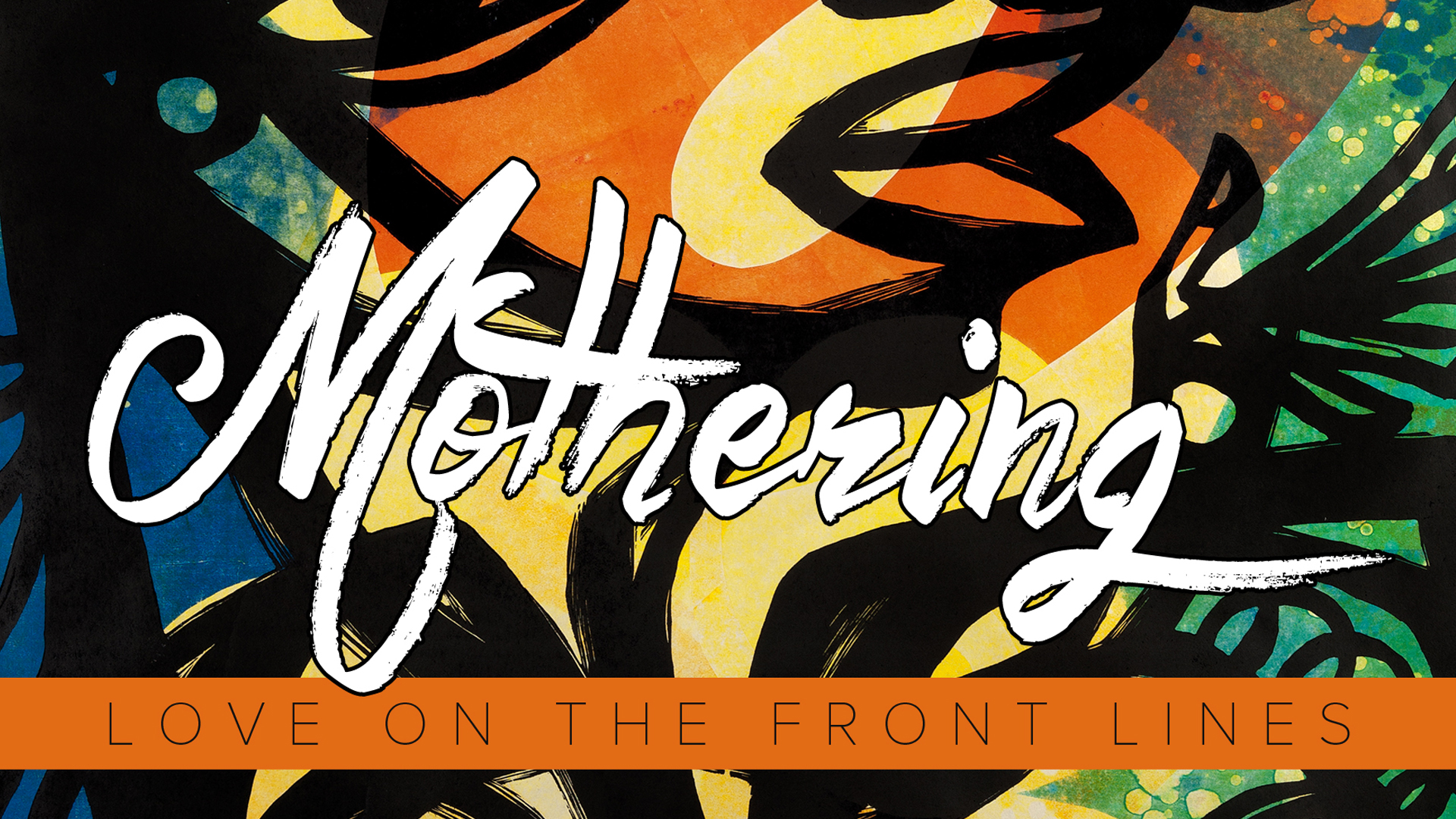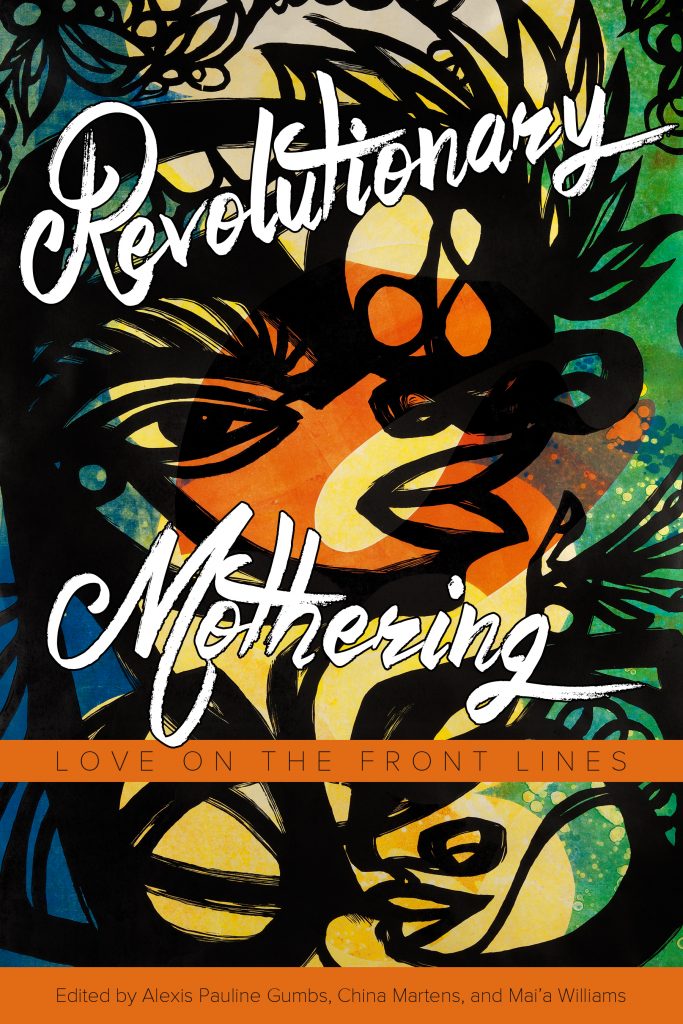By Reena Shadaan
Journal of the Motherhood Initiative
Spring/Fall 2017
Revolutionary Mothering: Love on the Front Lines is a powerful and deeply personal collection that illuminates the challenges and revolutionary practice that is mothering in the context of capitalism, white supremacy, hetero-patriarchy, and imperialism. The editors—Alexis Pauline Gumbs, China Martens, and Mai’a Williams—dedicate the collection “to all the revolutionary mothers and all the revolutions they’ve created, because mothering is love by any means necessary.” This theme is echoed throughout the collection. In poignant narratives, the contributors share their stories, as they reveal the diversity that is mothering—an important challenge to the overstated narrative of white, middle-class motherhood.
Gumbs, Martens, and Williams pay homage to the mothering praxis of feminists of colour decades prior, as Revolutionary Mothering is a reflection of and builds upon this foundational work. Likewise, Malkia A. Cyril and Esteli Juarez open the collection by recollecting the embodied resistance passed down to them. In fact, Loretta J. Ross, co-founder of SisterSong Women of Color Reproductive Justice Collective, writes the preface to the collection. Ross dis- cusses the revolutionary work of Black women, who founded the reproductive justice movement—the fundamentals of which are present throughout the anthology. As Gumbs writes, “Those of us who nurture the lives of those children who are not supposed to exist, who are not supposed to grow up, who are revolutionary in their very beings are doing some of the most subversive work in the world. If we don’t know it, the establishment does” (20).
The second section, “From the Shorelines to the Front Lines” looks at mothering as bridgework – between divided communities, between activist theory and activist practice, and between oppressions and radical futures. Alongside other poignant essays and poems, this section includes Cynthia Dewi Oka’s “Mothering as Revolutionary Praxis,” which declares the “Manifesto for Revolutionary Homemaking” – a call for justice, decolonization, healing, and collective responsibility. In addition, Victoria Law reflects on the transformation of her political work through motherhood, and Tara Villalba and Lola Mondragón reflect on the radical labour of mothering, which creates “seeds of … radical work” (77)—the children who will continue the cycle of resistance.
“The Bottom Line” is the third section of Revolutionary Mothering. Here, the contributors discuss the violence of mothering in neoliberalism including the diminishing narrative of scarcity (Autumn Brown), the difficult choices that are made (Norma Angelica Marrun, Rachel Broadwater), and the pain that this system can inflict (Vivian Chin, Layne Russell). But underlying these narratives are themes of strength, relationship, and hope (Christy Na- Mee Eriksen, Noemi Martinez). As China Martens writes in the introduction to “The Bottom Line,” “Children are Hope. Hope is the current, changing, moment, living, rising, being born, and resisting” (84).
The fourth section, “Out (of) Lines,” is introduced by Gumbs, who re- minds us that motherhood is systematically denied to Black mothers, immigrant mothers, and LGBTQ mothers. However, the practice of mothering is a different matter: “Mothering is a queer practice of transforming the world through our desire for each other and another way to be” (116). In addition to other powerful pieces, “Out (of ) Lines” re ects on LGBTQ mothering. This includes Katie Kaput’s reflections as a trans mama, and Ariel Gore’s resistance to the American nuclear family. As Gore writes, “I find it amusing that to be a threat to the nuclear family, all one has to do is live happily (or in honest depression) outside of it” (143).
“Out (of) Line” is followed by “Two Pink Lines,” which includes several pieces that explore transformation via mothering. For instance, Lisa Facto- ra-Borchers reflects on childbirth facilitating a new feminist praxis. Likewise, H. Bindy K. Kang writes as a “radical mama” (177), transformed by the birth of a daughter in a complex dynamic of patriarchy in aspects of Kang’s culture, alongside cultural racism and patriarchy embedded in the state. The collection ends with further pieces that explore themes of transformation, as well as resilient, hopeful futures rooted in love (“Between the Lines”). Ultimately, Revolutionary Mothering is a powerful collection of stories that affirm mothering as the bridge to radical futures.
Back to Mai’a Williams Author Page | Back to Alexis Pauline Gumbs’s Author Page | Back to China Marten’s Author Page







